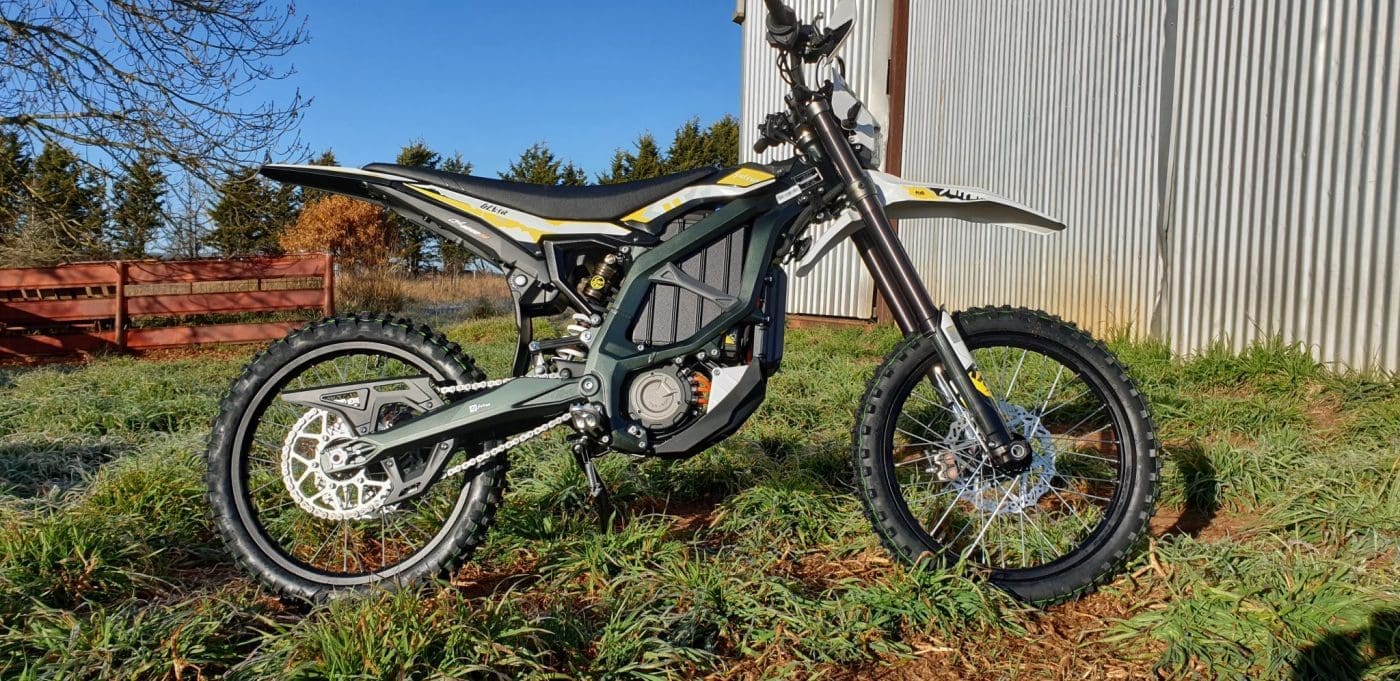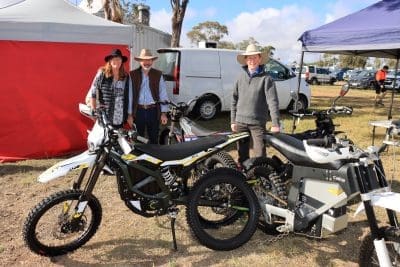AS THE technology for electric motors improves through a wave of investment across the world, a New South Wales producer says electric two-wheel motorbike have become a practical option for working livestock.
Justin Hoad, who runs a property near Uralla in Northern New South Wales, has been investigating the uses of electric bikes for the past five years and has since started selling them.
“Back in 2018, there was a lot of talk about four-wheelers being dangerous and there wasn’t a lot of good petrol bikes available,” Mr Hoad said.
“Then we came across electric bikes with no gears or clutch, so people that were used to four-wheelers could transfer across easily.”
With some funding from Meat & Livestock Australia, Kondinin Group and his own money, Mr Hoad imported several electric bikes from France, China and Sweden and started trialling them on different properties to see how they would handle stock work.
The study found that electric bikes had the potential to become a major cost saving for producers, with one full battery costing about $1.50. Mr Hoad said the light and easy-to-handle bikes also had practical benefits.
“The farmers that rode them were really impressed with how easy they were to ride and how quiet they were with the stock.
“You can go as slow as you want, it is like you are always in the right gear. It is like having the benefits of a horse without having to feed them.”
Electric bike technology improving
Range is one of the big issues that often comes up with electric vehicles as they time to charge rather than simply refuelling like a petrol bike.
The MLA study found that the battery range of most bikes was sufficient for four hours of slow mustering or about 50km of faster riding. Mr Hoad said the bikes were now to getting 50 to 100km per charge with interchangeable batteries.
“The batteries are really progressing and you getting further per charge and you can really easily swap the batteries and go 50 to 100km multiple times in a day,” he said.
“It takes about three to four hours to charge them on a normal 240v socket. You can plug it in over lunch time and get a substantial charge – maybe another 20 to 30km.”
Mr Hoad said one of the early challenges with electric bikes was how small they were – which he said had been rectified with a new model.
“The new one feels a bit more familiar to motorcycle riders with its ergonomics, it has better suspension and is more aligned to 200 to 250cc petrol bike,” he said.
“They also have the batteries sealed off really well which makes them good in the wet. They can handle rough terrain quite well – especially without gears.
“With the manufacturing of electric bikes growing so much, there is a good after market sector developing and there is the potential to get parts and have different wheel sets and batteries. There isn’t any servicing for the batteries and motor.”
Asked about the emissions benefits of electric bikes, Mr Hoad said it had the potential to be zero-emissions if it was powered with solar or wind. However, he said the main benefit was in practicality.
“The biggest advantages I can see is the quiet operation around the stock and light weight,” he said.


